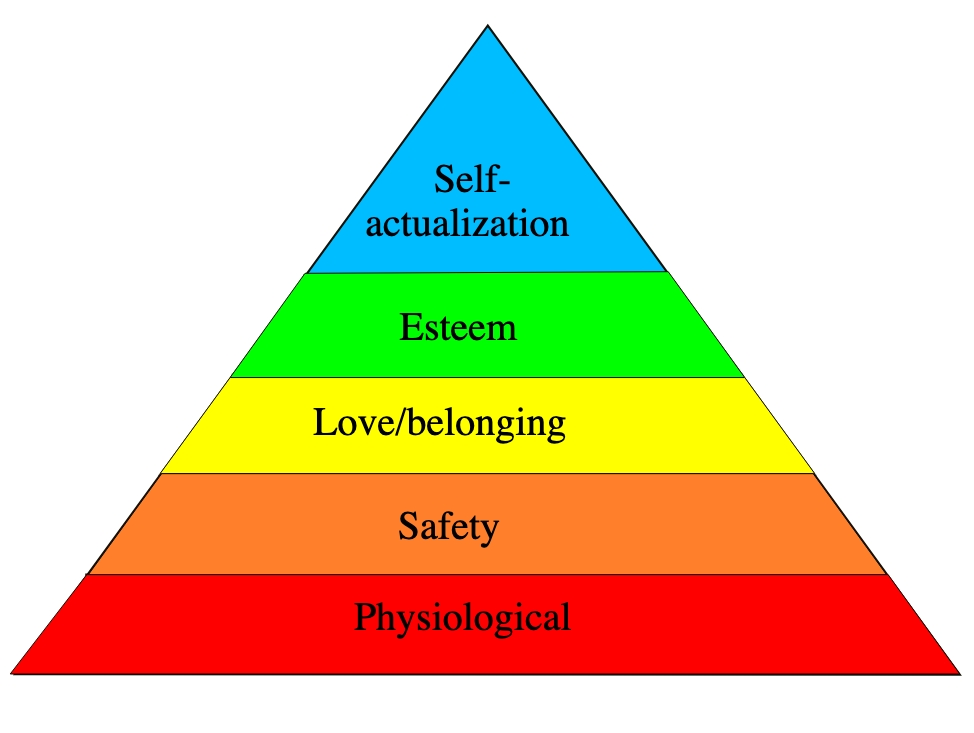
 File image
File imageMay 23, 2019 – Your position as a leader requires more than just keeping your team on track for your company’s goals. You should also strive to empower your employees to stay on track for their personal goals.
For guidance in this area, you should review and understand psychologist Abraham Maslow’s hierarchy of needs (see image), which suggests people first need to fill their physiological needs (including food, shelter and safety) before they can meet their psychological needs (including their relationships, sense of belonging and self-esteem) and finally attain self-actualization (including their potential, ego and accomplishments).
Vital to success
Cultivating meaningful relationships with your employees is vital for your company’s success. Through these relationships, they should feel comfortable enough to share their personal goals with you and, hopefully, the rest of the team. Empowerment activates trust, which enables more open communication and understanding. When employees feel empowered, they contribute to a more positive company culture.
Personal goals should be set throughout the year. We can always strive to become better versions of ourselves, after all. When you help your employees set personal goals, you are encouraging them to be their best selves, such that they contribute a better influence on the team.
Therefore, it is in your best interest to empower your staff to dedicate themselves to goals outside the business.
Laying a solid foundation
If you do not already practise a method of empowering your staff to set personal goals and follow through on them, you should start. There are a few ways you can integrate this approach into your company culture.
Understanding the importance Maslow’s hierarchy lays a solid foundation. From there, you can begin to empower your employees individually. If you meet with them one-on-one and discuss their goals within the business, you should be able to discuss their personal goals, as well.
You can also empower your employees as a team. So, if you have team meetings where you all discuss company goals, set time aside to have all them contribute to a discussion about personal goals.
The key to helping them set and stick to their personal goals, whether one-on-one or in a group, is accountability. You can track progress together, offer words of encouragement and support one another through the difficult aspects of change.
It is a good idea to ask each person what will help them to be held accountable. For some, it will be a daily verbal reminder; for others, a sticky note left at their desk.
Once you start applying this method in your workplace, you will notice several changes in how your team performs.
Increased positivity
When people feel good about themselves, they exude confidence onto others, which contributes to a positive working environment. One of the keys, however, is to hold them accountable for their goals in a positive way.
Accountability should not be a punishment, but rather a positive reminder of goals and what reaching them will mean. As a leader, it is your job to give your team the tools they will need to accomplish both work-related and personal goals.
Science has shown how setting and completing goals is one of the foundations to living a happy life. Helping your team become content will be reflected in their positivity and their work performance. They will feel doubly empowered knowing (a) they can complete goals they set for themselves and (b) they can rely on you as their leader to help them.
Improved performance
People who feel good about themselves can establish trust in the people and organizations that influence them. They are able to be their best selves and perform better.
Feelings of sadness, low self-worth, anxiety and other negative emotions can affect employees’ performance and carry over to the other people they influence. When you empower them to follow through with their personal goals, on the other hand, and they feel good about themselves for achieving those goals, they will in turn have a positive influence on their peers. Those who feel valued and know they can contribute to their work environment in a positive manner are able to complete tasks more quickly and efficiently.
A domino effect
If you can understand the foundation of human needs, as defined by Maslow, and apply it to your leadership tactics through communication and empowerment, then you will provide a positive influence on your team. The domino effect will create a working environment with strong individuals performing at their optimal status—a passionate team ready to tackle both individual and shared goals.
Brian Smith is author of the new book, Individual Advantages: Find the “I” in Team. He has a background in organizational psychology, management information systems (MISs) and accounting. His company, IA Business Advisors, has served more than 18,000 clients since 1996. For more information, visit www.iabusinessadvisors.com.
This article originally appeared in the special Distribution & Supply section of the May 2019 issue of Electrical Business magazine.
Print this page